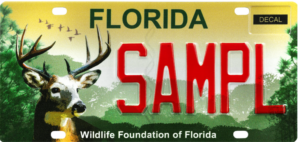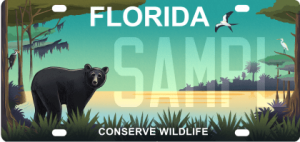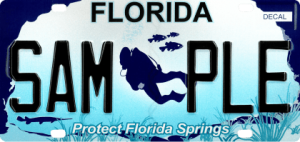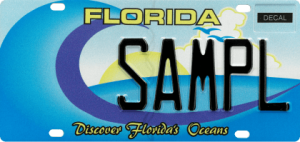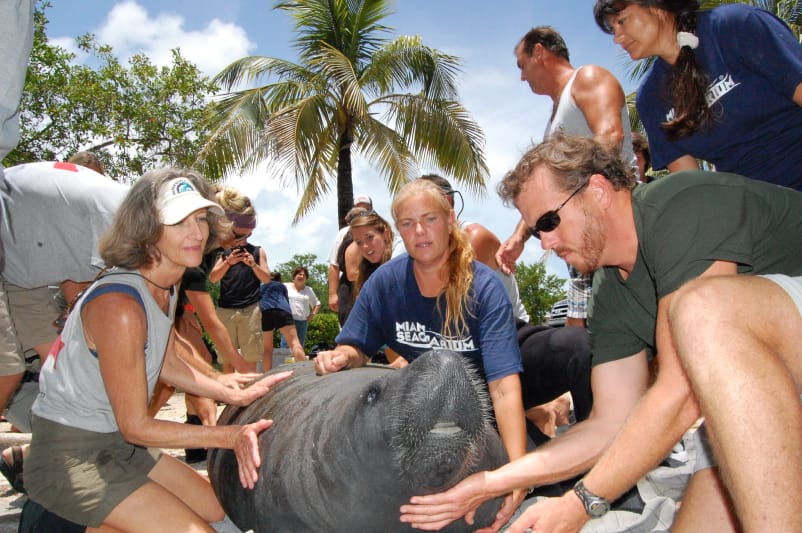There are many ways to leave a lasting, wild legacy with us. Protecting Florida’s outstanding wildlife and natural lands and waters requires long-term commitment, which your planned gift helps provide.

If you have questions about these gift planning ideas or other options, please contact planned giving specialist
Gordon L. Nelson, CPA, CFP®
435.213.9986 [email protected]- Gifts from Will or Trust
- Gifts of Stocks and Bonds
- IRA Rollovers
- Gifts of Retirement Assets
- Beneficiary Designation Gifts
- IRA to Gift Annuity Rollover
- Donor-Advised Funds
- Field-Of-Interest Endowments
- Real Estate Or Other Tangible Property
- Gift of Insurance
- Charitable Gift Annuity
- Charitable Remainder Unitrust
- Charitable Remainder Annuity Trust
- Charitable Lead Trust
- Life Estate Reserved
Gifts from Will or Trust
Naming the Fish & Wildlife Foundation of Florida in your estate plans is a popular, simple, and wonderful way to leave a lasting legacy for conservation and youth outdoor education. You can designate an amount or a percentage of your estate. It has no impact on your current lifestyle and can be updated at any time.
Most of our planned giving supporters make unrestricted gifts that allow us to use their funds for our most pressing needs. We are happy, however, to discuss any specific wishes you may have for your gift.
One way to get started on your legacy is to use FreeWill. FreeWill is a free, online will-writing tool that guides you through the process of creating your will and legacy in 20 minutes or less. The resource is completely free to use. Start your will today.
If you have already included a gift to the Fish & Wildlife Foundation of Florida in your will or trust, fill out this form to let us know. We would love to thank you for your generosity.
To make an unrestricted bequest, consider using the following language in your estate plan:
“I bequeath $_________ or _____ percent of my residuary estate to the Fish & Wildlife Foundation of Florida, a 501(c)(3) not-for-profit organization, organized and existing under the laws of the State of Florida (Federal tax identification number 59-3277808), for its ongoing conservation and educational purposes.” [If you’d like to restrict your bequest for a specific purpose, please contact the Foundation to discuss.]
Individuals making gifts via their estate plans are vital to our long-term effectiveness and are honored as members of the Foundation’s Conservation Legacy Society. If you plan to include the Fish & Wildlife Foundation of Florida in your estate plans or already have done so, please let us know! Your information will be kept confidential unless you wish to be listed as a member of the Conservation Legacy Society.
The Foundation always encourages donors to consult with their financial and tax advisors before making a planned gift.
Gifts of Stocks and Bonds
Donating appreciated securities, including stocks, bonds, or mutual funds is an easy and tax-effective way to make a gift.
BENEFITS OF GIVING STOCKS, BONDS, AND MUTUAL FUNDS
- Avoid paying capital gains tax on the sale of appreciated investments.
- Receive a charitable income tax deduction.
- Make a significant impact on our mission today.
HOW TO MAKE A GIFT OF STOCKS, BONDS, OR MUTUAL FUNDS
By electronic transfer – Please contact us for instructions on how you can transfer stock or bonds from your brokerage or investment account to Fish & Wildlife Foundation of Florida.
By certified mail – If you hold securities in certificate form, you will need to mail two envelopes separately to complete your gift. In the first envelope, place the unsigned stock certificate(s). In the other envelope, include a signed stock power for each certificate. You may obtain this form from your broker or bank. Please remember to use certified mail.
MORE INFORMATION ON GIFTS OF APPRECIATED SECURITIES
There are special rules for valuing gifts of appreciated securities tax deduction purposes. The value is determined by taking the average between the high and low stock price on the date of the gift. Mutual fund shares are valued using the closing price for the fund on the date of the gift. Please consult with your tax advisor.
IRA Rollovers
This is an easy and tax-smart way to make a big difference. If you are 70½ or older, an IRA charitable rollover may be a perfect fit.
BENEFITS OF AN IRA CHARITABLE ROLLOVER
- Avoid taxes on transfers of up to $100,000 from your IRA to FWFF.
- Transfer can be used to meet IRS required minimum distribution (RMD) for the year.
- May reduce your taxable income, even if you do not itemize your deductions.
- The gift is not subject to the normal deduction limits on charitable gifts.
HOW AN IRA CHARITABLE ROLLOVER GIFT WORKS
- Contact your IRA plan custodian or financial advisor about making a gift from your IRA to us. They will provide the form that is required and help you make the gift.
- The IRA funds will be transferred directly to FWFF to help continue our work.
- Please note that IRA charitable rollover gifts do not qualify for a charitable deduction.
- Contact us if you wish for your gift to be used for a specific purpose.
Gifts of Retirement Assets
Giving a percentage or even all of unused retirement assets, such as an IRA, 401(k), 403(b), pension, or other tax-deferred plan, is an excellent way to make a gift to Fish & Wildlife Foundation of Florida.
If you are like most people, you probably will not use all of your retirement assets during your lifetime. You can make a gift of your unused retirement assets to help further our mission.
BENEFITS OF GIFTS OF RETIREMENT ASSETS:
- Avoid potential estate tax on retirement assets.
- Your individual beneficiaries would avoid income tax on any retirement assets that were funded on a pre-tax basis.
HOW TO MAKE A GIFT OF RETIREMENT ASSETS:
To leave retirement assets to Fish & Wildlife Foundation of Florida, you simply need to complete a beneficiary designation form provided by your retirement plan custodian. If you designate Fish & Wildlife Foundation of Florida as beneficiary, we will benefit from the full value of your gift because your IRA assets when received. Your estate will also benefit from an estate tax charitable deduction for the gift.
MORE ON GIFTS OF RETIREMENT ASSETS
Did you know that up to 60% of your retirement assets may go to taxes if you leave them to individuals at your death? Another option is to leave your heirs assets that receive a step up in basis, such as real estate and stock, and give retirement assets to Fish & Wildlife Foundation of Florida. As a charity, we are not taxed upon receiving an IRA or other retirement plan assets.
Beneficiary Designation Gifts
A beneficiary designation gift is a simple and affordable way to make a gift. You can designate us as a beneficiary of a retirement, investment or bank account, or a life insurance policy.
BENEFITS OF A BENEFICIARY DESIGNATION GIFT:
- Support the causes that you care about.
- Continue to use your account as long as you need to.
- Very easy to do and avoids expensive legal fees.
- Reduce the burden of taxes on your family.
- Reduces your taxable estate.
HOW TO MAKE A BENEFICIARY DESIGNATION GIFT:
- To make your gift, contact the person who helps you with your account or insurance policy, such as your broker, banker or insurance agent.
- Ask them to send you a new beneficiary designation form.
- Complete the form, sign it and mail it back to your broker, banker or agent.
- When you pass away, the assets will be paid or transferred to Fish & Wildlife Foundation of Florida, consistent with the beneficiary designation.
IMPORTANT CONSIDERATION – FLEXIBILITY
If you would like to make a significant gift but are also concerned about your future needs, beneficiary designation gifts are among the most flexible and popular of all charitable gifts. Even after you complete the beneficiary designation form, you can take distributions or withdrawals from your retirement, investment or bank account and continue to use your account as normal. You can change your mind at any time in the future for any reason, including if you have a loved one who needs your financial help.
IRA to Gift Annuity Rollover
Looking for a way to help further our mission and enhance your income? If you are 70½ or older, you can make a one-time IRA rollover to fund a charitable gift annuity and receive fixed payments for life.
BENEFITS OF AN IRA TO GIFT ANNUITY ROLLOVER
- Reduce your taxes with a one-time transfer of up to $50,000 from your IRA to a Gift Annuity.
- Receive lifetime, guaranteed, fixed payments for you and, if you choose, for your spouse. Payout rates are the highest they’ve been in a decade.
- Potentially reduce your required minimum distribution (RMD) this year.
- Help further our work and mission.
HOW AN IRA ROLLOVER TO GIFT ANNUITY WORKS:
- Contact us about creating an IRA rollover to gift annuity with Fish & Wildlife Foundation of Florida.
- Contact your IRA plan administrator to make a one-time qualified charitable distribution (QCD) of up to $50,000 from your IRA to Fish & Wildlife Foundation of Florida.
- Your IRA gift will go to fund your gift annuity payments.
- Please note that IRA gifts to charitable gift annuities do not qualify for a charitable deduction.
- After you receive payments for life, the remaining balance will be a gift to us.
- Please contact us if you wish your future gift to be used for a specific purpose.
Donor-Advised Funds
A Donor-Advised Fund gives you a convenient, versatile way to make charitable contributions when and how you want. You can make an initial donation — and claim the maximum tax benefits allowed by law – then take your time to decide which nonprofit organizations or activities you want to support. It’s a great choice if you want to spread your giving over time and among a variety of causes. The minimum gift to establish a Donor-Advised Fund is $50,000.
Field-Of-Interest Endowments
A Field-of-Interest Endowment is a permanent fund you create to fund specific conservation areas of focus – Florida rare plants, marine mammals, coral reefs, control of invasive species, outdoor youth education, etc. Your endowment ensures your particular conservation interests are supported without limiting the funding to any one organization. The minimum gift to establish a permanently endowed fund is $100,000.
Real Estate Or Other Tangible Property
Donating appreciated real estate, such as a home, vacation property, undeveloped land, farmland, ranch, or commercial property can make a great gift to Fish & Wildlife Foundation of Florida. Gifts of tangible, personal property like boats, artwork, jewelry, etc. can also be a great way to support our cause.
BENEFITS OF GIFTS OF REAL ESTATE
- Avoid paying capital gains tax on the sale of the real estate.
- Receive a charitable income tax deduction based on the value of the gift.
- Leave a lasting legacy to Fish & Wildlife Foundation of Florida.
Your gift will generally be based on the property’s fair market value, which must be established by an independent appraisal.
Gift of Insurance
A gift of a life insurance policy is an excellent way to support Fish & Wildlife Foundation of Florida. If you have a life insurance policy that is no longer used for its original purpose, consider making a gift of your policy to Fish & Wildlife Foundation of Florida.
BENEFITS OF GIFTS OF LIFE INSURANCE
- Receive a charitable income tax deduction.
- If Fish & Wildlife Foundation of Florida keeps the policy to maturity, you can receive additional tax deductions by making annual gifts so that we can pay the premiums if any are required.
- If Fish & Wildlife Foundation of Florida cashes in the policy, you will be able to see how your gift supports our mission.
- If we retain the policy to maturity, or you name us as a beneficiary the proceeds will be paid to our organization so that we can use the proceeds for important work.
HOW TO MAKE A GIFT OF LIFE INSURANCE
To make a gift of life insurance, please contact your life insurance provider, request a beneficiary designation form from the insurer and include Fish & Wildlife Foundation of Florida as the beneficiary of your policy.
Charitable Gift Annuity
Are you tired of living at the mercy of fluctuating stock and real estate markets. A charitable gift annuity is a gift that can provide you with a secure source of fixed income payments for life. We work with a capable third-party administrator for our gift annuity program.
BENEFITS OF A CHARITABLE GIFT ANNUITY (CGA)
- Receive fixed payments to you or another person you designate for life.
- Receive a charitable income tax deduction for the charitable gift portion of the annuity.
- Benefit from payments that may be partially tax-free.
HOW A CHARITABLE GIFT ANNUITY WORKS
- You transfer cash or property to a charity/qualified CGA administrator.
- In exchange, you receive a promise to receive fixed payments to you for life. The payment can be quite high depending on your age, and a portion of each payment may be tax-free.
- You will receive a charitable income tax deduction for the gift portion of the annuity.
If you decide to fund your gift annuity with cash, a significant portion of the annuity payment will be tax-free. You may also use appreciated securities to fund a gift annuity and avoid a portion of the capital gains tax.
Fish & Wildlife Foundation of Florida uses a capable third-party administrator for our gift annuity program in which Fish & Wildlife Foundation of Florida is listed as the beneficiary of the contract.
Charitable Remainder Unitrust
BENEFITS OF A CHARITABLE REMAINDER UNITRUST
- Receive income for life, for a term of up to 20 years or life plus a term of up to 20 years.
- Avoid capital gains on the sale of your appreciated assets.
- Receive an immediate charitable income tax deduction for the charitable portion of the trust.
- Establish a future legacy gift to our organization.
HOW A CHARITABLE REMAINDER UNITRUST WORKS
- You transfer cash or appreciated assets to fund a charitable remainder unitrust.
- In the case of a trust funded with appreciated assets, the trust will then sell the assets tax-free.
- The trust assets are invested to pay income to you or any other trust beneficiaries you select based on a life, lives, a term of up to 20 years or a life plus a term of up to 20 years.
- You receive an income tax deduction in the year you transfer assets to the trust.
- Our organization benefits from what remains in the trust after all the trust payments have been made.
Charitable Remainder Annuity Trust
You may be looking for a way to receive fixed income for life or a number of years. You may be concerned about the high capital gains tax upon the sale of an appreciated asset. A charitable remainder unitrust might offer the benefits you’re looking for.
BENEFITS OF A CHARITABLE REMAINDER ANNUITY TRUST
- Receive fixed income for life or a term of up to 20 years.
- Avoid capital gains tax on the sale of your appreciated assets.
- Receive an immediate charitable income tax deduction for the charitable remainder portion of your gift to Fish & Wildlife Foundation of Florida
HOW A CHARITABLE REMAINDER ANNUITY TRUST WORKS
- You transfer cash or appreciated assets to fund a charitable remainder annuity trust.
- In the case of a trust funded with appreciated assets, the trust will then sell the assets tax-free.
- The trust assets are invested to pay fixed income to you or any other trust beneficiaries you select based on a life, lives or a term of up to 20 years.
- You receive an income tax deduction in the year you transfer assets to the trust.
- Our organization benefits from what remains in the trust after all the trust payments have been made.
MORE DETAILS ON CHARITABLE REMAINDER ANNUITY TRUSTS
If you are tired of the fluctuating stock market and want to receive fixed payments, a charitable remainder annuity trust may provide you with the stability you desire. A charitable remainder annuity trust pays a fixed amount each year based on the value of the property at the time the trust is funded.
Charitable Lead Trust
If you are looking for a way to transfer some of your assets to your family while reducing or eliminating gift or estate taxes on an asset that has high appreciation potential, a charitable lead trust could be an excellent option.
BENEFITS OF A CHARITABLE LEAD TRUST
- Receive a gift or estate tax charitable deduction.
- Pass assets to family at a reduced or zero cost.
- Establish a way to make annual gifts to charity.
HOW A CHARITABLE LEAD TRUST WORKS
- You contribute property to a trust that pays Fish & Wildlife Foundation of Florida income for a number of years.
- You receive a gift or estate tax deduction at the time of your gift.
- After a period of time, your family receives the trust assets plus any additional growth in value.
Life Estate Reserved
You may be interested in leaving your home or farm to Fish & Wildlife Foundation of Florida at your death but would also like continue to use the property while living. You’d also like to receive a sizable current charitable income tax deduction. A life estate reserved might be what you need.
BENEFITS OF A LIFE ESTATE RESERVED
- Receive a federal income tax deduction for the value of the remainder interest in your home or property.
- Preserve your lifetime use and control of your home or property.
- Create a life estate based on more than one life. This will preserve the use of the property for you and a loved one, such as a spouse or dependent child.
HOW A LIFE ESTATE WORKS
- You deed your home or property to Fish & Wildlife Foundation of Florida. The deed will include a provision that gives you the right to use your home or property for the rest of your life and that of any other life estate party named in the deed.
- You and Fish & Wildlife Foundation of Florida sign a maintenance, insurance and taxes (MIT) agreement to explain that you will do your best to keep the property in good condition and that you will maintain property insurance and pay the property taxes.
- When the owners of the life estate have passed away, your home or property will belong to Fish & Wildlife Foundation of Florida. We will use or sell the property to further our charitable work.





